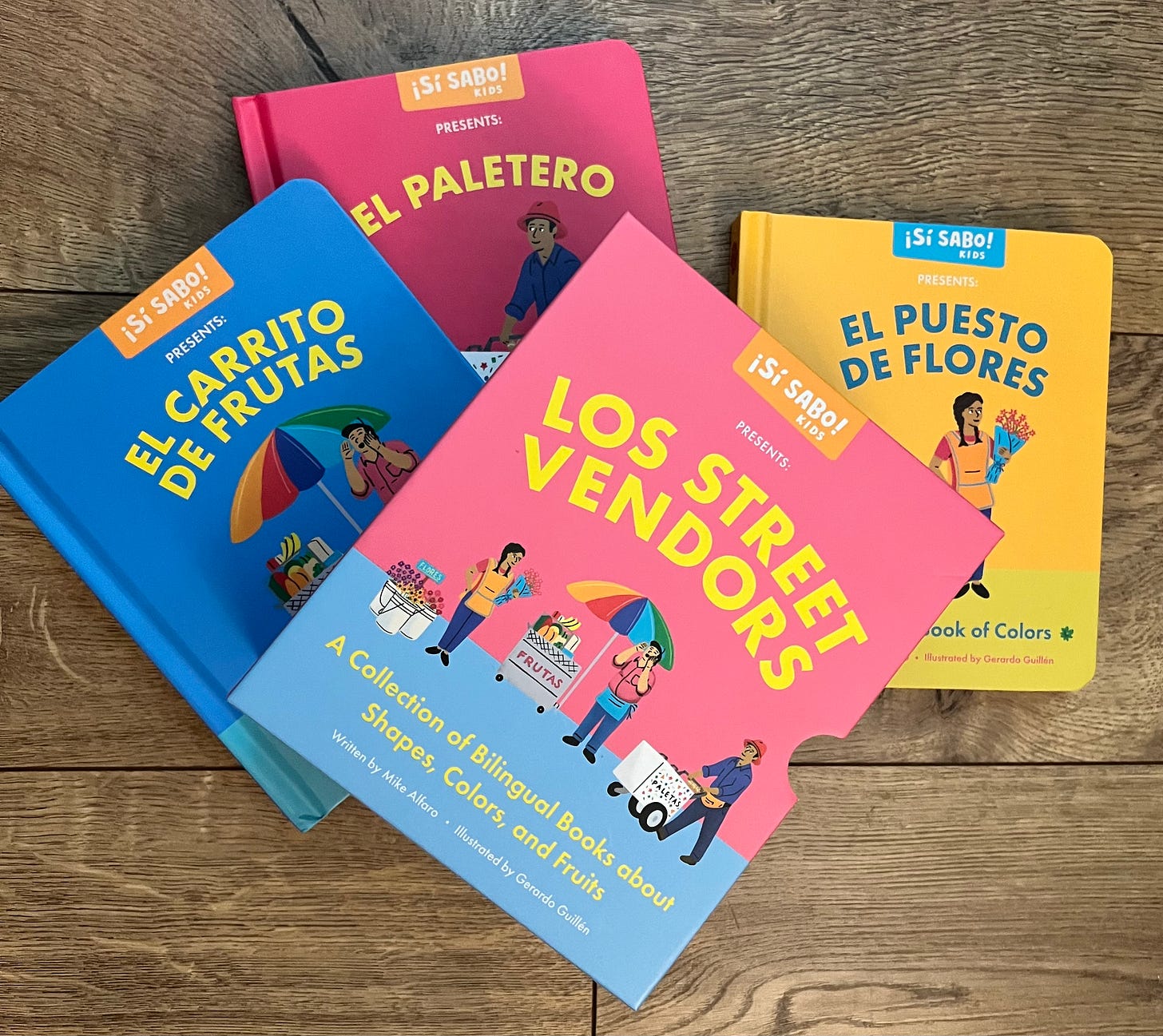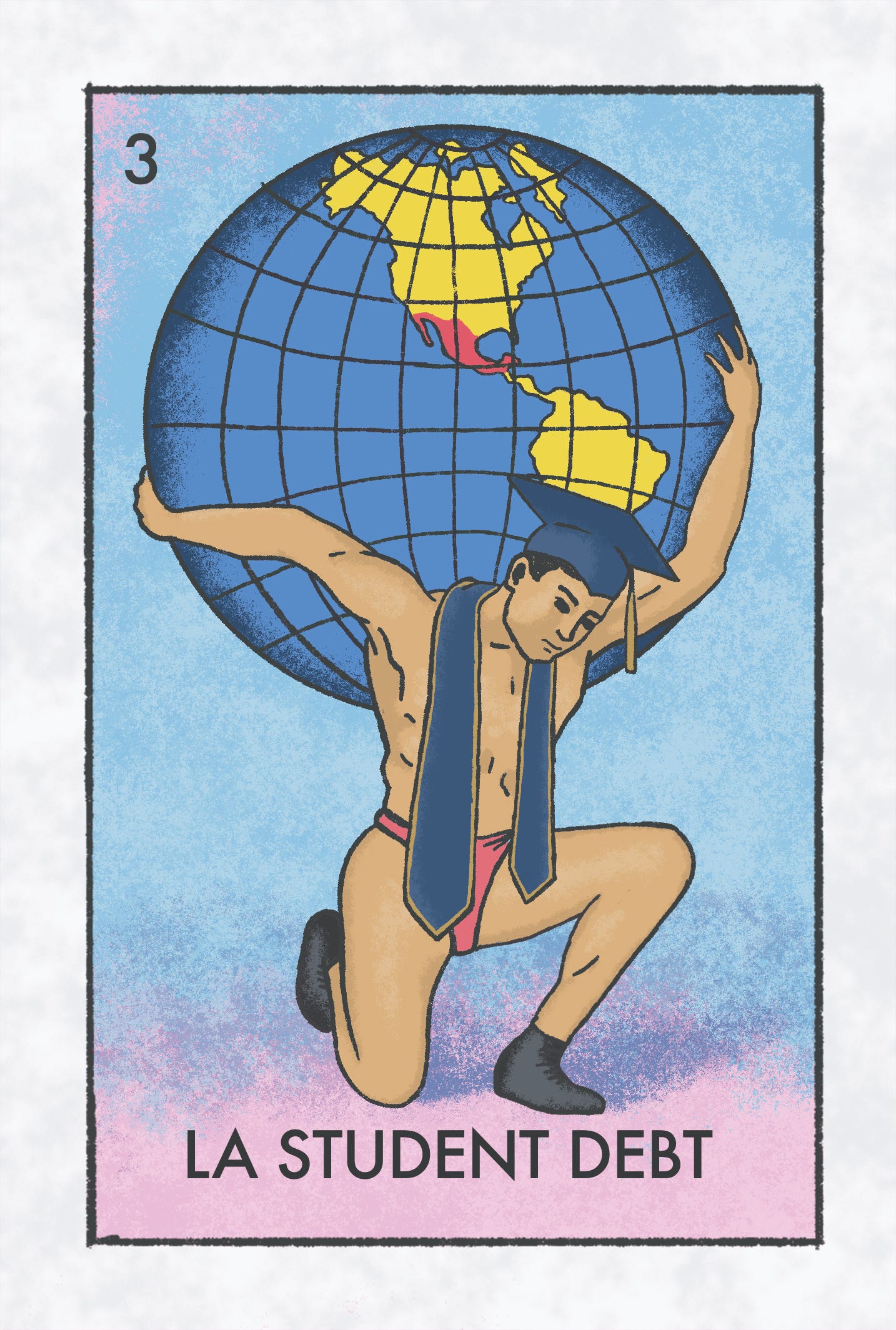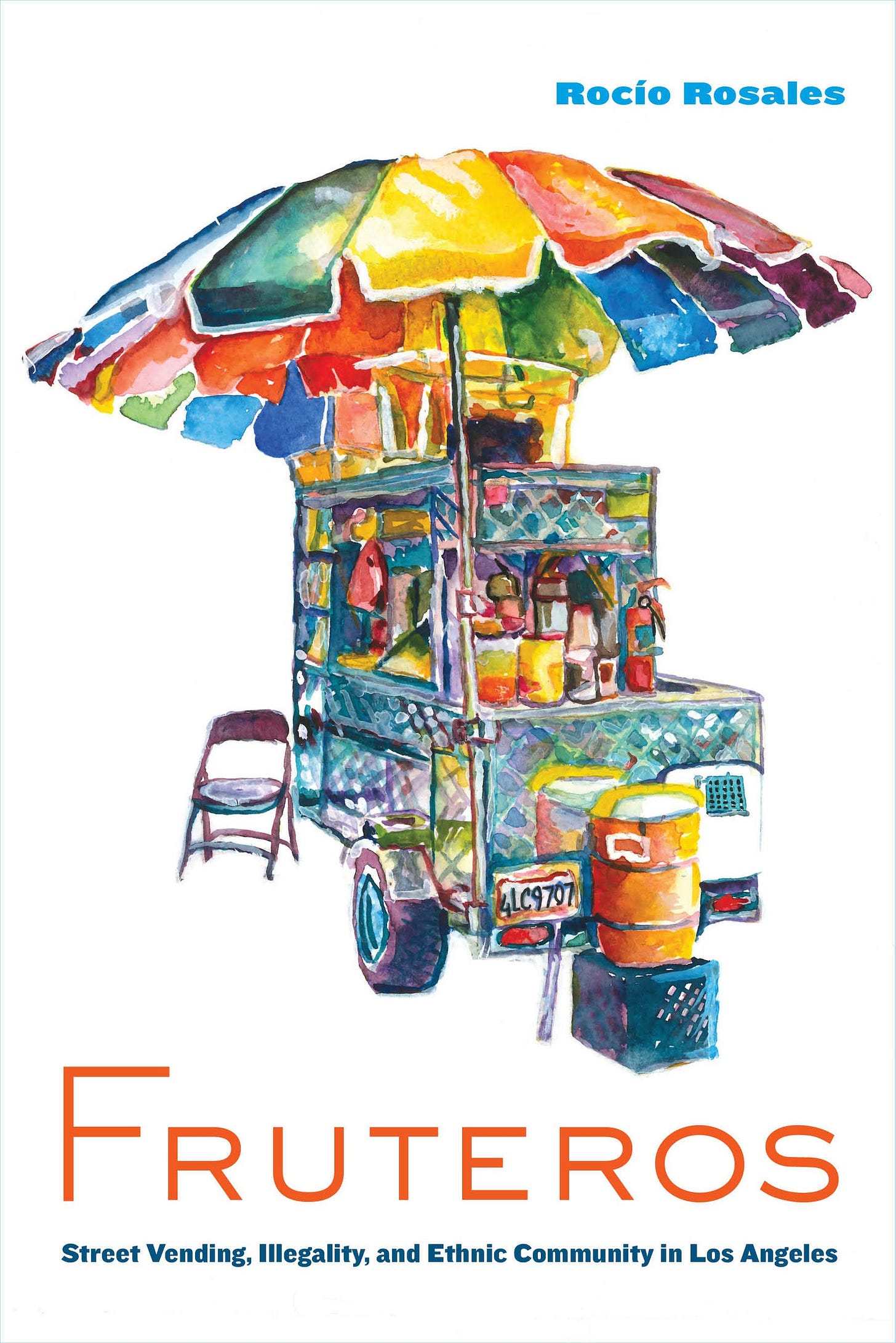"There are bigger forces here at play in how the United States is changing and how culture is changing in terms of bilingual education."
Mike Alfaro describes why he is making sure his Sí Sabo Kids books and games will support families across the U.S.
This week, we continue our conversation with Mike Alfaro, creator of Millennial Lotería and Sí Sabo Kids. Reflecting on the needs of bilingual families, Mike speaks to how his work is challenging cultural assumptions in the U.S. and broadening the possibilities of language learning for young people.
If you missed the first part of our conversation, you can find it here:
ALIX DICK: You recently shared that you have spent half of your life in Guatemala. How does that inform Si Sabo Kids?
MIKE ALFARO: I grew up speaking Spanish at home with my mom and dad, but they really instilled in me the idea that a bilingual education would really open the doors for me in terms of my career and what I wanted to do. They were always saying, "A second language is incredibly important." They didn't speak a second language, but they put me in a bilingual school where I was taught English and Spanish throughout the day. That's how I learned English while in Guatemala.
But before that, my parents would teach me with little flashcards, even though they didn't know the language. I remember my mom trying to figure out how to say “bird.” She's trying to teach me how to say things. And so that's I think what inspired me to make sure that even from early on I can bring those things to my daughter, start early on introducing that a second language is a possibility.
ANTERO GARCIA: Do you have any memories or personal experiences with street vendors that related to this book series?
MA: Street vendors were normal in Guatemala. They're right here outside my house. I see them all the time walking up and down our street. They have big meetups down on the corner, like the Ralph's parking lot. There's always a lot of vendors there on weekends. So, it's just part of life. They're doing honest hard work, and that's something that should be celebrated. I've seen a lot of people look down on vendors, attack vendors. Just recently, there was a vendor here in California that was attacked. I wanted to make sure that these books showed kids to respect street vendors, to know that they are part of an important part of the community.
In these books, really, the street vendors are teaching kids valuable things in Spanish. It centers them in a way that they haven't been centered before. And so for me, that was a reason why I really wanted to talk about street vendors. And I thought it was really cute too, that you could learn fruits and colors from these vendors. And then paletas can show you different shapes because paletas naturally come in all these different shapes and colors. I thought that was a really smart way to sneak in some learning while also having a bigger narrative about street vendors.
[Vendors] are doing honest hard work, and that's something that should be celebrated… I wanted to make sure that these books showed kids to respect street vendors, to know that they are part of an important part of the community.
AG: I saw you made a paleta cart to give out copies of the books.
MA: Again, as a creative director, I wanted to have something that really got in the mind of people, got in the mind of consumers. We have 3,000,000 views on just this video of me trying to transform an old paleta cart into a new one, so I knew that it's connecting with people. And so the response when I go to the street vendors, first they laugh because they're like, "What's this guy coming up with me?" They're like, "What is this?" And then I asked them, "Do you have kids?" A lot of them are like, "Yeah, I have kids. That's what I'm doing." And give them the books and they like them. I haven't had a negative reaction.
I think some people have been confused: "Do I have to buy these?" And I was like, "No, no, no, they're free. I'm just giving them out for free." I feel like if street vendors are going to see themselves represented in these books, they start conversations with them too like, "Hey, there's these books for my kids."
I always told my publisher, "We have to have a budget so that I can give these out for free to street vendors." That's something I will continue to do. We have some bigger plans to do more stuff once we have other books out there. But for now, it was just a fun little creative idea of how to get the word out without too much money behind it. Maybe $400 budget on remaking one of these paleta carts for 3,000,000 views, that's a really good return on investment.
AG: The Sí Sabo Kids website mentions many different forthcoming products. What are some of the ones you’re most looking forward to sharing with the public?
MA: There’s stuff that's out there that I haven't fully announced yet. This is not stopping. I'm telling you, when I wanted to do Sí Sabo Kids, I didn't come up with just one book. I wanted to come out with a whole collection of things that people can use to learn language. Because there's so many ways to learn Spanish, there's so many different words. There's so many different items and perspectives that you can have. I want these books to grow with my baby. We have books for sounds and books for body parts. We're going to come out with puzzles for when kids are old enough to do puzzles.
We have an exclusive game that's coming out only at Walmart in October of this year, and it's called My First Bilingual Game Set. And it's a three-in-one bilingual game set where you can play Bingo, Memory, or a seek and find type of puzzle--all bilingual to help kids play games and also learn Spanish. It's done with the care that we do everything with Sí Sabo Kids. We have a quetzal in there. I'm from Guatemala, quetzal is our national bird. It's hard for me to find kids’ books that have a quetzal in them. But I'm like, "A quetzal – that’s cute. And it's the same in English and in Spanish. Perfect. Let's put a quetzal in there." All the other books are like, "Queso." And I was like, "We know how to say queso." But do kids really know how to say “quetzal”? I think that's something we should be teaching them early on.
If you want to do games with your kids, I want to be able to provide that for people, because like I said, there's a huge demand in the market, and there's brands like Walmart who are recognizing that, and they know it because they have the data to back up what consumers are looking for.
Again, we're a very early brand. We're very young still. We haven't even been out for six months. What, we launched in March? And so, for us to be able to have a relationship now with Walmart where they saw what we were pitching and they were like, "We want that, and we don't just want it to sell, we want it exclusively at our stores." I was like, "Okay, there are bigger forces here at play in how the United States is changing and how culture is changing in terms of bilingual education." I think it's just going to explode within the next few years with how many children millennials are having Gen Zers are having. That's going to be a big thing that I'm looking at in the future, and I want to make sure that I'm there at the start of it.
AD: I want to connect this to the creation of Millennial Lotería. I always loved Lotería, but this is so much more relatable to me and more exciting.
MA: I think nostalgia is incredibly powerful for Latinos. I was in Guatemala when I had taken that little sabbatical break just to focus on myself, and I found my old Lotería set that I had played growing up, and as I was going through it being like, "Oh my God, I remember playing this." I hadn't picked it up in so long because again, cell phones, video games, nobody's playing Lotería in that way. It brought so many good memories. And at the same time, this was 2017, so the Women's March, the Me Too Movement had really gained steam. And I remember the Women's March was going on on TV, so there was just thousands and thousands of women walking down the street with their signs, and I saw La Dama in my game and I was like, "Man, if this was today, it wouldn't be La Dama. That's such a reductive way of seeing all of Latinas."
What's your card? La Dama, that's what you are, this proper lady walking on the street, going shopping for flowers, whatever it is. It just seems so opposite to what was going on in reality that I was like, "Maybe it's not about changing Loteria." I think some people assumed that, but it's more about reflecting society today through the lens of something that was old, like Lotería, doing a small change to update it, so that you realize how much things have changed while at the same time how similar things can stay for us. So, for La Dama, she's not walking down the street with her flowers and her purse, she's walking down the street with her sign for feminism, because that's la feminist. I was like, "That makes sense." And I think that's why people have connected with it, because it's not about changing Lotería, it's about reflecting and seeing yourself represented, and that's what people really like.
They'll see La Selfie and they're like, "Yeah, I take tons of selfies." People see El Mundo, and instead of seeing the weight of the world, I change it to la student debt, and then that's more relatable to people because they feel like that's a big weight on their shoulders.
And so I think the connection just became, how can I do something that speaks to me, my generation, something that makes me feel seen, and do it through the context of Lotería, that is something that a lot of Latinos grew up playing, and it brings those things of nostalgia? And I think we've made a lot more people play Lotería than they would've if we hadn't had this product. We've sold more than half a million copies in the United States of Millennial Lotería. There's, what, 16 million Latinos in the United States? We haven't even made a dent in the market.
Propina
We’ll conclude our conversation with Mike Alfaro next week. If you are interested in a scholarly perspective of the lives of street vendors, we recommend looking at Dr. Rocio Rosales’ Fruteros: Street Vending, Illegality, and Ethnic Community in Los Angeles.
Additionally, earlier this week we, Alix and Antero, published an op-ed about the political landscape for immigrants in this country. Take a look here (that should be a “gift link” for free access).
And if you’re interested in sharing your own perspective with La Cuenta’s readers, please get in touch. We’ll see you next week.














